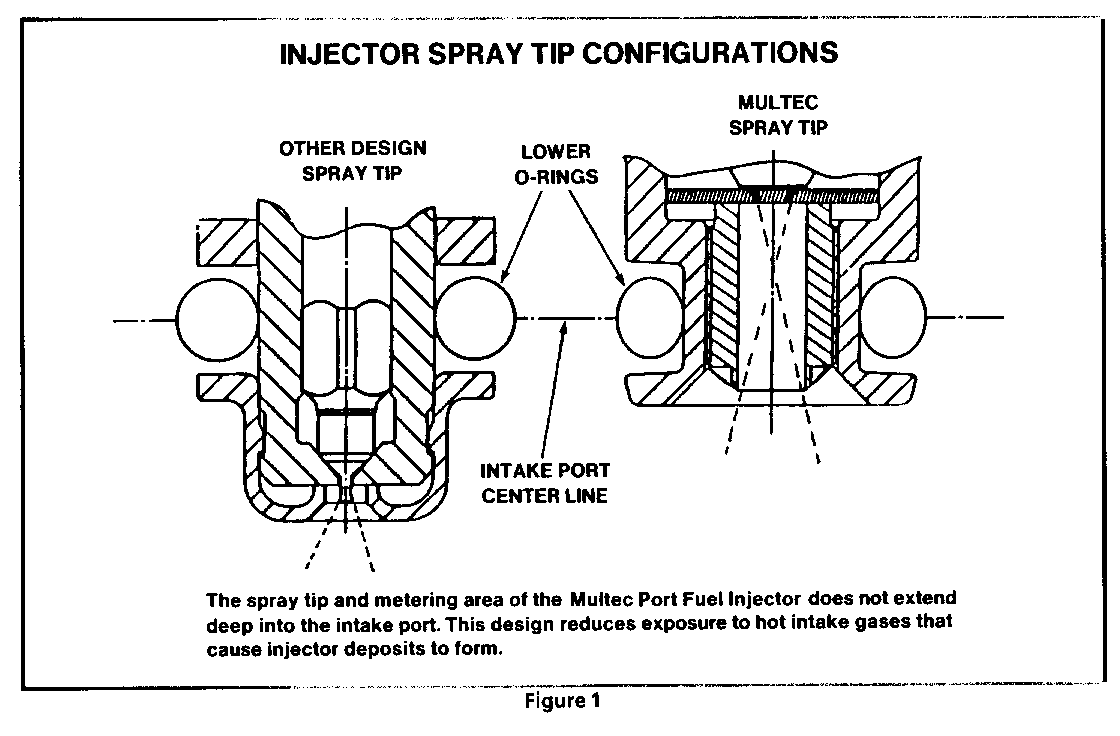INFO. ON MULTEC FUEL INJECTORS CLEANING IS NOT RECOMMENDED

SUBJECT: INFORMATION ON MULTEC PORT FUEL INJECTORS/CLEANING 1987-1991 VEHICLES WITH MULTEC PORT FUEL INJECTORS
MODELS AFFECTED: 1987-88 CENTURY MODELS WITH 2.8L (VIN W) ENGINE 1989-91 CENTURY AND SKYLARK MODELS WITH 3300 (VIN N) ENGINE 1988-91 SKYLARK MODELS WITH 2.3L QUAD 4 (VIN D) ENGINE 1988-91 REGAL MODELS WITH 2.8L AND 3.1L (VIN W AND T) ENGINE
This bulletin is being revised to include additional models affected not included in Bulletin 91-6E-11. Replace Bulletin 91-6E-11 with 91-6E-11A.
This bulletin has been written to inform technicians of possible damage to Multec port fuel injectors as a result of cleaning.
The ball and seat design of the Multec port fuel injectors eliminates the need of ever having to use an injector cleaner. By design, the fuel metering portions of the injector are not directly exposed to the intake manifold gases that are responsible for the build-up of deposits that can cause injectors to clog. (see Figure 1).
Some of these cleaners may contain high percentages of methanol and other solvents that cause damage to the injectors' coil wire insulation. Damaged insulation results in low resistance or shorted injectors. Also, high percentages of methanol or other solvents can increase friction at the injectors' critical bearing surfaces, resulting in premature wear.
General Motors has conducted extensive injector cleaning studies to determine effectiveness. There is no confirmed evidence that cleaning Multec port fuel injectors has resolved a vehicle driveability problem. In addition, suppliers of various injector cleaners may claim that their product can also clean intake valve deposits. General Motors laboratory tests have shown that injector cleaners have little or no effect on intake valve deposits.
General Motors maintains the position that Multec port fuel injectors should not be cleaned.

General Motors bulletins are intended for use by professional technicians, not a "do-it-yourselfer". They are written to inform those technicians of conditions that may occur on some vehicles, or to provide information that could assist in the proper service of a vehicle. Properly trained technicians have the equipment, tools, safety instructions and know-how to do a job properly and safely. If a condition is described, do not assume that the bulletin applies to your vehicle, or that your vehicle will have that condition. See a General Motors dealer servicing your brand of General Motors vehicle for information on whether your vehicle may benefit from the information.
